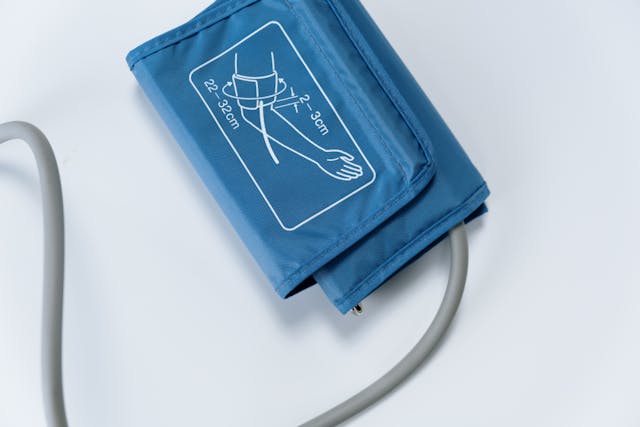In both the United States and across the globe, cardiovascular disease stands as the primary preventable cause of premature mortality and disability. Notably, heart attacks and strokes are significant contributors to the more than 900,000 deaths each year in the US and roughly 10 million worldwide.
A significant contributing factor to these conditions is uncontrolled hypertension or high blood pressure. Healthcare strategies often involve lifestyle intervention, exercise, and complementary pharmacological treatments to prevent and manage cardiovascular disease effectively.
A recently published commentary in The American Journal of Medicine highlights the urgency of this issue. Authored by experts from Florida Atlantic University’s Schmidt College of Medicine and their colleagues, the paper serves as a wake-up call to healthcare providers about the persistent threat of the so-called “silent killer.”
According to Stacy Rubin, M.D., senior author and assistant professor of medicine at FAU Schmidt College of Medicine, healthcare providers must recognize the prevalence and severity of uncontrolled hypertension in their patients. Dr. Rubin emphasizes the critical need for effective blood pressure management, noting the alarming statistic that sudden cardiac death accounts for 50% of all cardiovascular disease deaths and often represents the first noticeable symptom in approximately 25% of cases. She further points out that for 76% of those who suffer a stroke, the event itself is the first indication of any problem.
The importance of controlling blood pressure is well-documented and conceptually straightforward, although achieving this has historically been challenging. Before significant studies like the Hypertension Detection and Follow-Up Program in the 1970s in the U.S., awareness and effective management of high blood pressure could have been much higher. Recent data suggests slight improvements, with better understanding and management rates, yet these figures still point to a substantial portion of the population with uncontrolled hypertension.
Current guidelines from authoritative bodies like the American Heart Association and the American College of Cardiology recommend that a healthy individual should maintain a systolic blood pressure below 130 millimetres of mercury (mmHg) and a diastolic pressure under 80 mmHg. With these criteria, around 45% of U.S. adults are affected by hypertension, indicating a widespread public health challenge.
Another significant concern is the prevalence of metabolic syndrome, characterized by factors such as central obesity, elevated triglycerides, low HDL cholesterol, high fasting blood glucose, and hypertension. This syndrome is a significant risk factor for cardiovascular events in the U.S., which has one of the highest obesity rates globally.
Experts like Charles H. Hennekens, M.D., Dr.PH. Advocate for the use of ACE inhibitors or their advanced counterparts, receptor blockers, to manage patients with metabolic syndrome. These medications not only help control blood pressure but also provide protective benefits against heart attacks, strokes, and kidney disease.
Adopting healthier lifestyle choices, such as reducing weight, increasing physical activity, and decreasing salt intake, has been proven beneficial in managing hypertension. Combining these lifestyle modifications with medication can effectively lower blood pressure for individuals with blood pressure readings above 130/80 mmHg. Typically, medications are introduced when lifestyle changes do not reduce the pressure to below 140/90 mmHg.
Both health providers and patients must be aware of the daily and diurnal variations in blood pressure, which complicate the management of hypertension. Effective treatment often requires health providers to tailor treatment algorithms specifically for each patient, who must actively participate by regularly monitoring their blood pressure. The American Heart Association and the American College of Cardiology endorse using devices like the Omron blood monitor for home measurements.
Dr. Hennekens stresses the importance of patients checking their blood pressure both morning and evening and adjusting medication doses based on an average of three readings taken five minutes apart. Through diligent monitoring and management, health providers can play a crucial role in addressing the persistent issue of uncontrolled hypertension, potentially neutralizing the long-standing threat of the “silent killer.”
More information: Barry R. Davis et al, New Clinical Challenges In Hypertension Management, The American Journal of Medicine. DOI: 10.1016/j.amjmed.2024.07.005
Journal information: The American Journal of Medicine Provided by Florida Atlantic University








